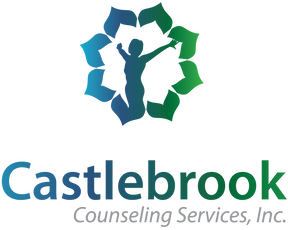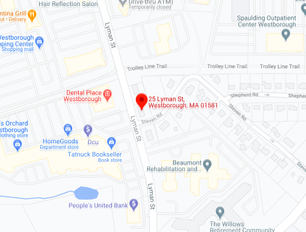DBT Conference Fun!By Kerrie Toole, LICSW, DBT-LBC Certified Clinician, Executive Director
In November, I attended the 28th Annual International Society for the Improvement and Teaching of Dialectical Behavior Therapy (ISITDBT) Conference and Association of Behavioral and Cognitive Therapies Conference. This year’s combined ISITDBT and ABCT conferences were held in the birthplace of DBT, Seattle, Washington, and also coincided with the 30th anniversary of the publication of Dr. Marsha M. Linehan’s groundbreaking treatment textbook. While Marsha herself has retired out of the public eye, a number of her early team members were present at the Conference and shared their wisdom, alongside researchers and practitioners who are on the cutting edge of exploring aspects of BPD and the benefits of using DBT to treat this and many other conditions. Dr. Sheila Crowell presented the Keynote Address for the ISITDBT conference, regarding Emotion Dysregulation factors across the lifetime, and the impact of providing DBT interventions to pregnant mothers to improve emotion regulation skills and the intergenerational transmission of stressors. A Research Lighting Round followed, with four groundbreaking studies regarding varied topics of utilizing apps and programs to enhance practice and skill usage between sessions, utilizing DBT in schools, skill building to help clients integrate skills beyond short-intensive treatment episodes, and ways to reduce risk of emotion dysregulation in early life experiences. Two break-out sessions of clinical workshops followed, as well as a presentation to the full conference by Christina Moon, a Zen Priest, regarding the racial and historical context of Zen and Buddhism and considerations for DBT practitioners. An update on DBT research in the past year was presented by Dr. Melanie Harned, the developer of the DBT-PE treatment protocol for PTSD. Dr. Harned reviewed research that showed promising results as well as mixed results with adolescents, which shows important guidelines about how much “dosage” of DBT and who is teaching DBT skills is effective with this population. The main takeaway is that, unsurprisingly, the longer the intervention over time, the better the outcomes. Due to the hybrid nature of this year’s conference (and conferences to come!), Castlebrook had the greatest number of therapists in attendance! There was lots of excitement from Castlebrook therapists about being inspired by the presenters, ideas about new directions in DBT, and new ways to support our clients. I also got to participate in the ABCT Conference on Friday through Sunday, with many panels, mini workshops, and research symposia directly pertaining to DBT, BPD, and emotion dysregulation. These presentations have given me inspiration to bring back to the Castlebrook DBT Teams to streamline and enhance our DBT Coaching and Consultation Teams, and explore therapist stylistic strategies to engage clients and their families. This year, I noticed an increased focus on ways to engage and train up Parents and Caregivers of adolescent and young adult clients, and I spent a lot of time talking with the foremost experts in this area about aspects of our respective Parent Programs. In addition to all the revolutionary research and program development shared by presenters, much fun was had connecting with DBT experts and practitioners from across the country and nerd out together. I was even invited by my friends at the “All Therapists Are Jerks, And…” podcast to talk with them about our experiences at the conference, and you can listen to those episodes here. As I love to say, this annual conference is my version of Comic-Con! Mental Health Trailblazers: Who Are Our Favorites in the Field?Lauren Chapin, LICSW
We all derive inspiration from somewhere or someone! Earlier this month, Castlebrook clinicians were asked to reflect on who their favorite, notable person was in the mental health field. Whether it be for their contributions, their inspiring work and dedication, or their overall persona, it’s uplifting to have a role model who has paved the way for us and helps to inspire our own growth. Dominee Calderon Dominee is a lesser known figure in the mental health world who contributes to the field largely through her resource website, Self-Love Rainbow, where you can find a plethora of helpful articles, print-outs, and worksheets that emphasize self-care and mental health. Cynthia Williams, LMHC, noted that “she combines self-disclosure and media design with self-help and professional tools, and I love it…it's all colorful, personable, fun, creative, and easy-ish stuff to help people become closer to themselves and their relationship with love and care. She paves the way for vulnerability with oneself and offers self-growth opportunities that aren't big, bold, and harsh but gentle, loving, compassionate, and fun. She also paves the way for a new generation of self-help and mental health education.” Gloria Lucas Gloria founded Nalgona Positivity Pride, an organization focused on eating disorder education, body positivity, and resources for Black Indigenous communities of color. According to her website, Gloria discusses the necessity for expanding eating disorder models to include these marginalized communities and utilizes grassroots activism, media, and public speaking to bring visibility and awareness to the needs of these groups. Kaitlyn Hall, LMHC, stated that Gloria is “single-handedly spearheading a movement towards harm reduction approaches to eating disorder treatment. She was the keynote at my conference last year and it was amazing to see someone with lived experience versus clinical background speak about what needs to change in the treatment of eating disorders.” Brené Brown Brené Brown is a household name in mental health circles and for good reason! She is an author, lecturer, and researcher who, by her own description, “spent the past two decades studying courage, vulnerability, shame, and empathy.” Brené fiercely faces even the toughest emotions and encourages people to look inside themselves to move through what is uncomfortable in order to build a stronger, more courageous life, as exemplified by her motto, “courage over comfort.” Her website is also full of free worksheet downloads and book supplements. Both Kirsten Gleason, LCSW and Cynthia Williams, LMHC, are big fans! Marsha Linehan Marsha Linehan has also been a force in the mental health field for decades. Through her development of Dialectical Behavior Therapy, she has helped tens of thousands of people cultivate emotional regulation, self-validation, mindfulness skills, positive behavior change, and so much more. Kerrie Toole, LICSW, is a DBT-Linehan Board of Certification Certified Clinician and remarked that “her contribution to the field, after living her own struggles with mental health, has changed the face of therapy and has built such compassion for people experiencing deep suffering. I don't just follow her treatment protocol at work, I also live the foundational concepts in my own daily life.” Teresa Kelly, LICSW, also points to Marsha Linehan as a favorite. Alegra Kastens Alegra is an obsessive-compulsive disorder specialist who utilizes social media to spread awareness of the disorder, its proper treatment, common misconceptions, and to build community. Alegra is open about her OCD diagnosis and isn’t afraid to lay bare her own struggles which allows others to feel comfortable doing the same. Lauren Chapin, LICSW, stated that “she is a powerhouse of information on OCD and related disorders. While she might not be well-known in the field (yet), she does incredible work on public awareness campaigns, creating accessible, informational content, and destigmatization. No, OCD is not an adjective.” |
Archives
May 2025
Categories |
Mission Statement
Castlebrook Counseling Services, Inc. is a group of private practice clinicians with a shared goal of strengthening our community by providing therapy and clinical support designed for children, adults, and families to successfully meet life’s challenges.
 RSS Feed
RSS Feed

